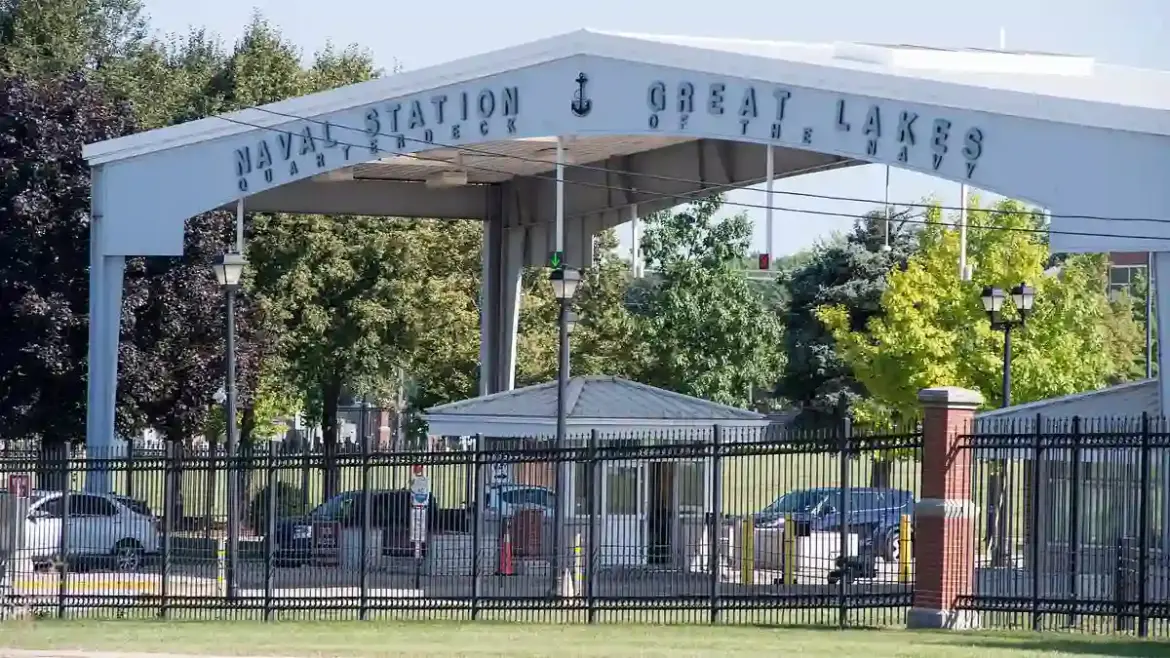Chicago is on edge as federal agents prepare for what could be one of the largest immigration crackdowns the city has seen in years.
The looming operation is tied to President Donald Trump’s plan to send military support into Democratic-led cities—something he has openly described as necessary to “straighten them out.”
DHS Moves to Use Illinois’ Largest Military Base
According to reports, the Department of Homeland Security has asked the Pentagon to allow Naval Station Great Lakes—the state’s largest military base—to serve as a hub for the mission.
Roughly 250 federal agents and 140 vehicles are expected to operate from the site, with the possibility that National Guard troops could also be deployed.
Equipment and personnel have already started arriving at the base, signaling that raids could begin at any moment.
Illinois officials warned that the crackdown could kick off as early as Friday night, with a larger push expected on Saturday.
Political Leaders Sound the Alarm
Illinois’ Democratic Governor J.B. Pritzker has accused the Trump administration of deliberately choosing September for the raids because of Mexican Independence Day celebrations in Chicago.
“We believe Stephen Miller specifically targeted this month to disrupt community gatherings tied to Mexican Independence Day,” Pritzker said, referring to Trump’s hardline immigration advisor.
“It breaks my heart to report that ICE is planning to disrupt peaceful parades and family picnics. This isn’t about safety—it’s about fear.”
In response to growing anxiety, organizers of El Grito Chicago, a major cultural festival, canceled their two-day event over concerns of raids and intimidation.
Mayor Johnson Pushes Back
Chicago’s Democratic Mayor Brandon Johnson is also resisting the federal intervention.
Last weekend, he signed an executive order that bans law enforcement officers from wearing face coverings during operations—something ICE agents have been criticized for in other cities.
Johnson reaffirmed Chicago’s sanctuary city policies, stressing that local police will not cooperate with ICE unless a criminal warrant is presented. He also urged residents not to let fear stop them from celebrating Mexican Independence Day.
“Why would I tell you to stay home?” Johnson asked.
“Why would we let someone who is auditioning to be a dictator intimidate the soul of Chicago? We should celebrate.”
Trump Defends the Operation
President Trump, however, insists the move is about cracking down on crime.
He pointed to Washington, D.C., where National Guard troops were deployed alongside ICE raids earlier this year.
Just two weeks ago, Trump said Chicago was next in line for a military deployment.
“We’ll straighten out Chicago, just like we did D.C.,” he declared, calling the city’s mayor “grossly incompetent.”
He also claimed residents were supportive of the plan, even suggesting that African-American women were personally asking him to send in federal troops.
“The people in Chicago are screaming for us to go,” Trump told Vice President J.D. Vance.
Legal Battles Already Brewing
Not everyone agrees with Trump’s approach.
In Washington, D.C., Attorney General Brian Schwalb has already filed a lawsuit arguing that the use of more than 1,000 National Guard troops there amounts to an illegal military occupation.
“No American jurisdiction should be involuntarily subjected to military occupation,” Schwalb said.
With tensions rising in Chicago, many expect similar legal challenges if federal agents and troops move forward with the raids.
